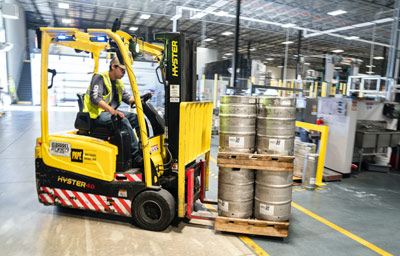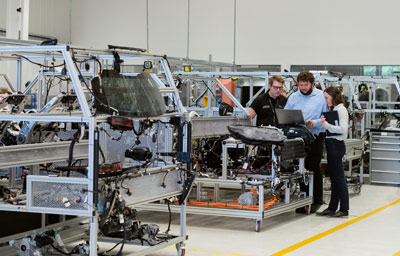Our consultants have experience in a wide variety of industries in the United States, Canada, Australia, and abroad. With each company we work with, our experience grows. Today, we bring our clients the insight that comes from working extensively with more than 300 companies.
While the employee issues are often consistent from industry to industry, technological and financial issues can vary widely. To demonstrate this, we have listed some of the industries and problems faced at companies that we have worked with.
Click on the links below to find examples of companies we have worked within your industry:
Mining
Minerals:Â Coal, gold, lead, tin, nickel.
Technologies: Open cut, underground, room and pillar, retreat, longwall, open stope.
- The high cost of today’s mining equipment necessitates running all equipment for as many hours as possible every week.
- Maintenance requirements frequently cause conflicts with production activities.
- Labor costs are a significant portion of the cost of mining. This results in lean staffing which, in turn, results in many problems associated with overtime distribution and absenteeism.
- The marginal cost of additional production can make spot market sales very lucrative.
Manufacturing
Types: Batch and continuous process, assembly lines, vertically and horizontally integrated, high and low-tech.
- Equipment costs vary widely from one manufacturing operation to another. If the equipment is expensive, companies strive to get the maximum utilization out of every piece. If equipment is relatively inexpensive, companies often buy more machines to increase production–until they run out of room to expand. Under both scenarios, shiftwork becomes a byproduct of growth.
- Production demands frequently vary with the seasons. This usually results in high overtime and temporary help utilization.
- Often labor-intensive, most manufacturing environments are strongly affected by local unemployment levels.
- Many manufacturing companies produce hundreds of SKU’s at a single facility. This creates an inventory and changeover problems.
Food Processing
Types:Â Beef, chicken, seafood, soups and gravies, canned foods, confectioneries, snack foods.
- In addition to normal manufacturing issues, food processing is often driven by sanitation requirements. Meeting these requirements reduces the time available for both production and maintenance activities.
- Seasonal demands vary more in food processing than in most other manufacturing environments.
- Freshness issues create numerous deadlines that constrain the operation.
- Not meeting demands means cut orders and lost customers. All of these issues make an efficient and flexible shiftwork operation extremely important.
Refining, Chemicals, Pharmaceuticals
- Huge capital investments require all oil refineries and many chemical operations to maximize their equipment utilization with schedules that cover 24 hours a day, 7 days a week.
- While these types of schedules are ideal for continuous operations, they may fail to meet other scheduling needs of the organization.
- Safety issues make dedicated training time essential to the safe operation of these plants.
Law Enforcement
Types:Â Local/county/city, state/providence, correctional.
- Service and safety are paramount concerns for both the officers and the public.
- Coverage is needed 24/7, with higher coverage usually needed during commute times and evening hours.
- Governmental budgets are being squeezed even as populations (and therefore the workload) increases.
- The opportunity to use alternative shifts like 10-hour shifts is greater here than in almost any other industry. Click here for more information.
Printing
Types:Â Books, commercial, direct mail, newspapers.
- With the exception of newspapers, most printing operations function as huge job-shops. Every product is different.
- Make-ready and changeover time management is essential to efficient operations.
- Equipment performance often varies significantly from machine to machine — yielding production improvements through equipment optimization.
- Printing skills are readily transferred to new employers, making employee retention essential.
Call Us and We Can Help
Call or text us today at (415) 763-5005 to discuss your operations and how we can help you solve your shift work problems. You can also complete our contact form and we will call you.








